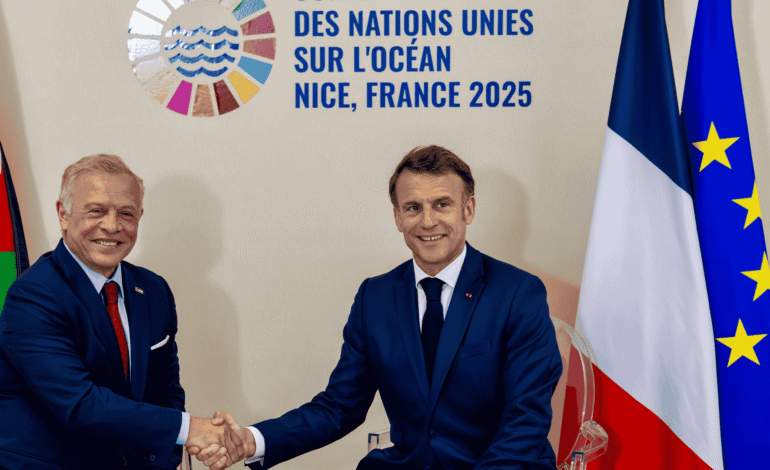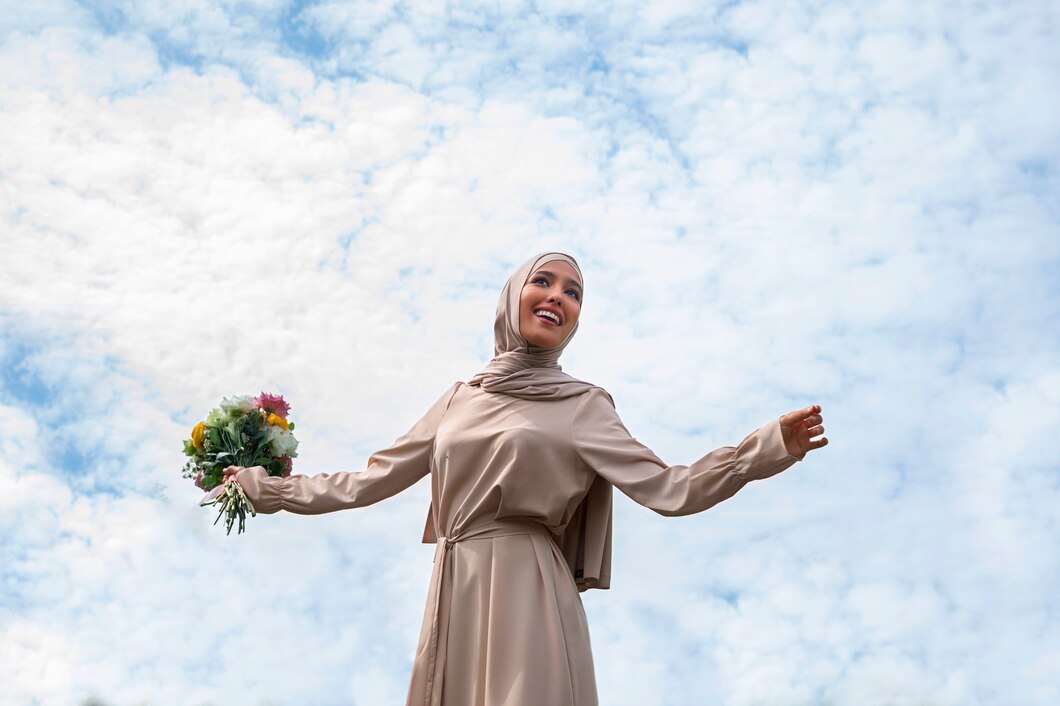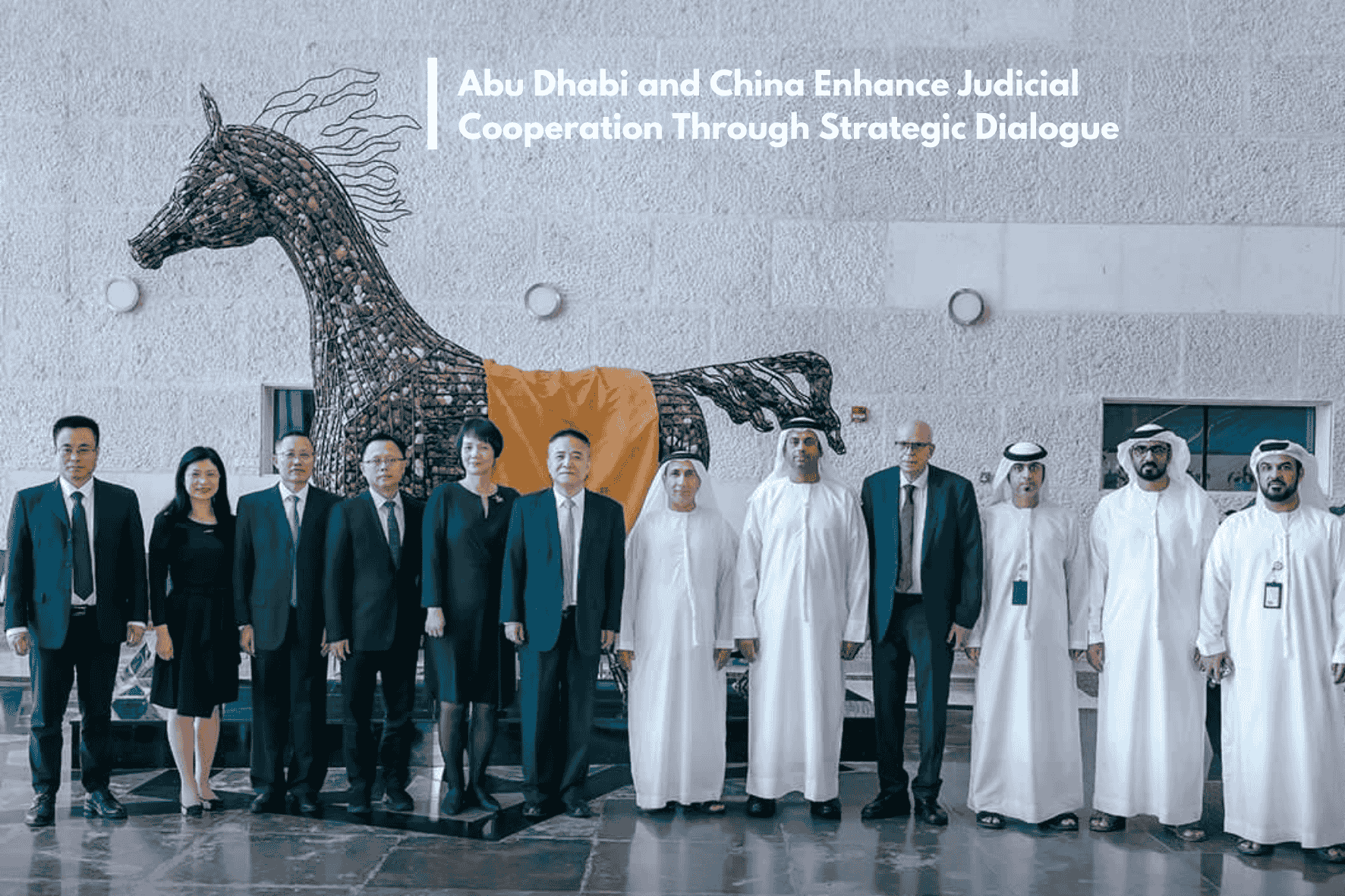King Abdullah II & Macron Seek Middle East Stability, Gaza Ceasefire

On Monday, King Abdullah II of Jordan met with French President Emmanuel Macron during the sidelines of the third United Nations Ocean Conference. The two leaders engaged in extensive discussions on enhancing the strategic partnership between Jordan and France. Their dialogue focused on boosting cooperation across multiple sectors, including political, economic, and humanitarian fields, with the overarching goal of fostering peace and stability in the Middle East—a region grappling with ongoing conflicts and humanitarian crises. This high-level meeting signaled the commitment of both countries to work collaboratively and to coordinate international efforts aimed at resolving longstanding regional challenges.
Jordan’s Readiness to Deepen Cooperation with France
King Abdullah II reiterated Jordan’s eagerness to strengthen ties with France, highlighting the critical importance of bilateral cooperation in addressing complex regional issues. Jordan and France share mutual interests in promoting peace, security, and sustainable development in the Middle East. Both leaders agreed that increasing partnerships in areas such as trade, investment, education, technology, and humanitarian assistance would contribute significantly to improving the socio-economic conditions across the region. The meeting underscored the mutual recognition that enhanced collaboration between Jordan and France would serve as a model for regional cooperation, helping to stabilize neighboring countries and create pathways for long-term peace.
Regional Challenges and the Need for Coordinated International Efforts
The ongoing conflicts in the Middle East, particularly the Israeli-Palestinian issue, continue to pose significant threats to regional peace and security. During their discussions, King Abdullah II and President Macron stressed the importance of sustained international coordination to address these challenges effectively. They emphasized the urgent need for a comprehensive calm and an immediate ceasefire in Gaza, where the humanitarian situation remains dire. Both leaders highlighted that international partners must work in concert to restore peace and ensure that humanitarian aid reaches those affected by conflict without delay or obstruction.
The Urgency of Reinstating Ceasefire and Humanitarian Access in Gaza
King Abdullah II expressed grave concern about the humanitarian crisis unfolding in Gaza due to ongoing hostilities. The disruption of essential services, including medical care, food supply, and shelter, has worsened the plight of civilians caught in the conflict. In their meeting, the leaders called for a swift reinstatement of the ceasefire, which would enable humanitarian organizations to deliver urgent aid safely and efficiently. This step is seen as crucial to preventing further loss of life and alleviating suffering among Palestinian communities. The discussion reaffirmed the shared belief that peace and humanitarian relief must go hand in hand to create a foundation for lasting stability.
Escalations in the West Bank and Jerusalem: A Cause for Concern
King Abdullah II voiced serious concerns over the recent escalation of violence and tensions in the West Bank and Jerusalem, underscoring the severe consequences that continued unrest could have for peace efforts in the entire region. He reiterated Jordan’s longstanding position that the recognition and fulfillment of the Palestinians’ legitimate rights are essential prerequisites for achieving durable peace. This includes the right to self-determination and the establishment of an independent Palestinian state. Jordan’s role as custodian of the Islamic and Christian holy sites in Jerusalem further deepens its commitment to safeguarding the city’s status and ensuring respect for all religious communities.
France’s Pivotal Role in Supporting Middle East Peace
King Abdullah II expressed his appreciation for France’s active role in advancing peace initiatives in the Middle East. France has been a key proponent of the two-state solution as the most viable framework for resolving the Israeli-Palestinian conflict. The King highlighted France’s leadership in organizing an international peace conference scheduled to take place in New York from June 17 to 20, in partnership with Saudi Arabia. This conference is intended to mobilize the global community to renew efforts aimed at promoting dialogue, de-escalating tensions, and laying the groundwork for meaningful negotiations.
The International Conference: A Platform for Renewed Peace Dialogue
The upcoming conference offers an important platform for international stakeholders to reaffirm their commitment to peace in the Middle East. Jordan and France both view the event as a critical opportunity to bring together key regional and global actors to discuss practical steps toward conflict resolution and humanitarian support. The conference aims to strengthen cooperation on addressing the root causes of instability and to promote initiatives that uphold human rights and justice for all parties involved. This renewed diplomatic momentum is essential to overcoming decades of stalled peace processes.
The Importance of Upholding the Two-State Solution
Central to the discussions between King Abdullah II and President Macron was the reaffirmation of the two-state solution as the cornerstone for peace in the Middle East. Both leaders acknowledged that this approach—envisioning an independent Palestinian state alongside Israel—remains the internationally recognized framework for resolving the conflict. They stressed that any sustainable peace agreement must respect the rights and aspirations of both Israelis and Palestinians, ensuring security, sovereignty, and coexistence. Jordan’s consistent advocacy for this solution underscores its strategic and humanitarian interests in regional peace.
Strengthening Humanitarian Aid and Development Cooperation
Beyond political dialogue, the meeting emphasized the necessity of expanding humanitarian aid and development cooperation to support vulnerable populations affected by conflict. Jordan, hosting a significant number of refugees, particularly from Syria and Palestine, benefits from international assistance to manage the humanitarian needs of displaced persons. France has been a longstanding partner in providing humanitarian support and development aid, focusing on education, healthcare, infrastructure, and economic resilience. Both leaders agreed on the importance of continuing and enhancing such support to improve living conditions and create opportunities for affected communities.
Promoting Stability through Economic and Social Initiatives
Economic development and social cohesion are vital components of sustainable peace and stability in the Middle East. King Abdullah II and President Macron recognized that investment in infrastructure, job creation, and education are key to addressing the underlying causes of conflict, such as poverty and marginalization. Strengthening economic ties between Jordan and France, as well as supporting regional initiatives, can contribute to building resilient societies less susceptible to violence and extremism. The leaders discussed potential collaborations to stimulate trade, innovation, and cultural exchange, fostering mutual understanding and cooperation.
The Role of Multilateral Cooperation in Regional Peacebuilding
The meeting highlighted the essential role of multilateral organizations and partnerships in advancing peace and security in the Middle East. The United Nations, alongside regional entities and global powers, has a responsibility to facilitate dialogue, coordinate humanitarian efforts, and support conflict resolution. Jordan and France share a commitment to working within these multilateral frameworks to ensure that collective action is effective and inclusive. Both leaders underscored the need for sustained diplomatic engagement and flexible strategies that adapt to evolving circumstances on the ground.
Jordan’s Strategic Position and Leadership in Regional Affairs
Jordan’s geographic location and political stability position it as a pivotal player in Middle East affairs. King Abdullah II’s leadership reflects a balanced approach that seeks to maintain good relations with diverse regional and international partners. Jordan continues to advocate for peaceful solutions while managing complex domestic and external challenges. The cooperation with France reinforces Jordan’s ability to contribute meaningfully to regional dialogue and humanitarian initiatives, reinforcing its role as a bridge between various actors.
A Shared Vision for Peace and Stability
The meeting between King Abdullah II and President Emmanuel Macron concluded with a shared vision of advancing peace, stability, and humanitarian relief across the Middle East. Their discussions underscored the importance of coordinated international action, renewed diplomatic efforts, and strengthened bilateral cooperation. Both leaders committed to continue working together and mobilizing the global community to address the region’s pressing challenges through peaceful means and mutual respect.







